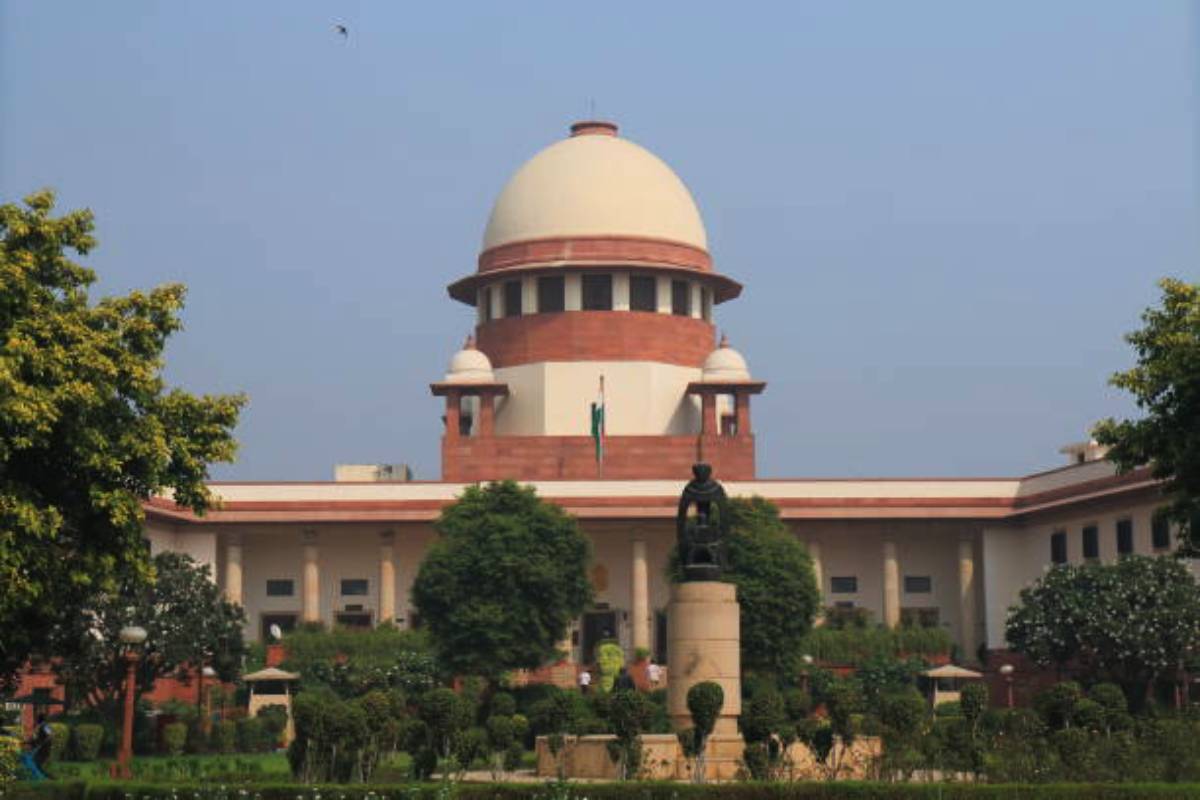The Supreme Court on Monday said to discourage the news channels from resorting to sensational and errant reporting of the incidents, there should be an “effective” self-regulatory mechanism, expressing dismay over the paltry maximum fine of Rs 1 lakh on the channels violating the code of ethics and broadcasting standards of observing impartiality and objectivity in news reporting.
Asking “How much fine you impose. How much they earn by advertisement”, Chief Justice D Y Chandrachud, heading a bench also comprising Justice J B Pardiwala and Justice Manoj Misra, said, “If you impose a fine of Rs 1 lakh, what is the motivation… (to adhere to the ethic code)?”
Chief Justice Chandrachud further said, “Your Self-Regulatory Mechanism has to be more effective. If you impose a fine of Rs 1 lakh, is it effective? Your fine should be in proportion to the amount of money you make from advertisements.”
The top court’s observations on the need to have an effective self-regulatory mechanism (SRM) came in the course of the hearing of a petition by the News Broadcasters Association challenging the Bombay High Court judgment of January 2021. In the said judgment while holding that the SRM was a myth, the High court had favoured a statutory regime for media regulation.
The high court judgment had come on a PIL on media frenzy in the wake of the suicide by late film star Sushant Singh Rajput.
Making it clear that it was averse to any footprints of government in the affairs of media reporting, and was all for self-regulatory mechanism and strengthening it, Chief Justice Chandrachud said, “We are as much concerned as NBA on Article 19(1) (guaranteeing freedom of speech and expression). There are responsible channels, and there are others who don’t (abide by the ethic code).”
Having made clear that the existing framework of self-regulatory mechanism of NBA was not enough to enforce deterrence and curb irresponsible reporting, the bench asked senior advocate Arvind Datar to speak to Justice A.K. Sikri – Chairperson, News Broadcasting & Digital Standards Authority (NBDSA) and its former chairman Justice R.V. Raveendran, on the steps required to strengthen self-regulatory mechanism.
Observing on the ways, the reporting by visual media amounts to interfering with investigations in cases, Chief Justice Chandrachud said, “You virtually pre-empt criminal investigation.”
Observing that NBDSA does not have “teeth” to effectively enforce the ethics code and broadcasting standards, the Chief Justice Chandrachud said, “You (NBA) carry the reputation of a judge of the Supreme Court. The NBA has to be effective. Supreme Court judges will go by your guidelines. Are there teeth in NBA guidelines (to enforce them.”
The Solicitor General Tushar Mehta too apprised the bench of the regulatory mechanism put in place by the government and sought to place it before the court in detail in the next hearing likely to take place on September 18.
As senior advocate Arvind Datar appearing for the NBA sought to defend the voluntary body’s self-regulatory mechanism, Chief Justice Chandrachud said, “I don’t know, if you take the heads of people present in the court, you will not succeed in what you are saying.”
Pointing to ineffectiveness of the self-regulatory mechanism, advocate Pai Amit, who appeared for the PIL petitioners before the Bombay High Court, told the bench that in one instance when NBDSA imposed a fine of Rs. One lakh on a well-known channel, it left the body and created a new one.












